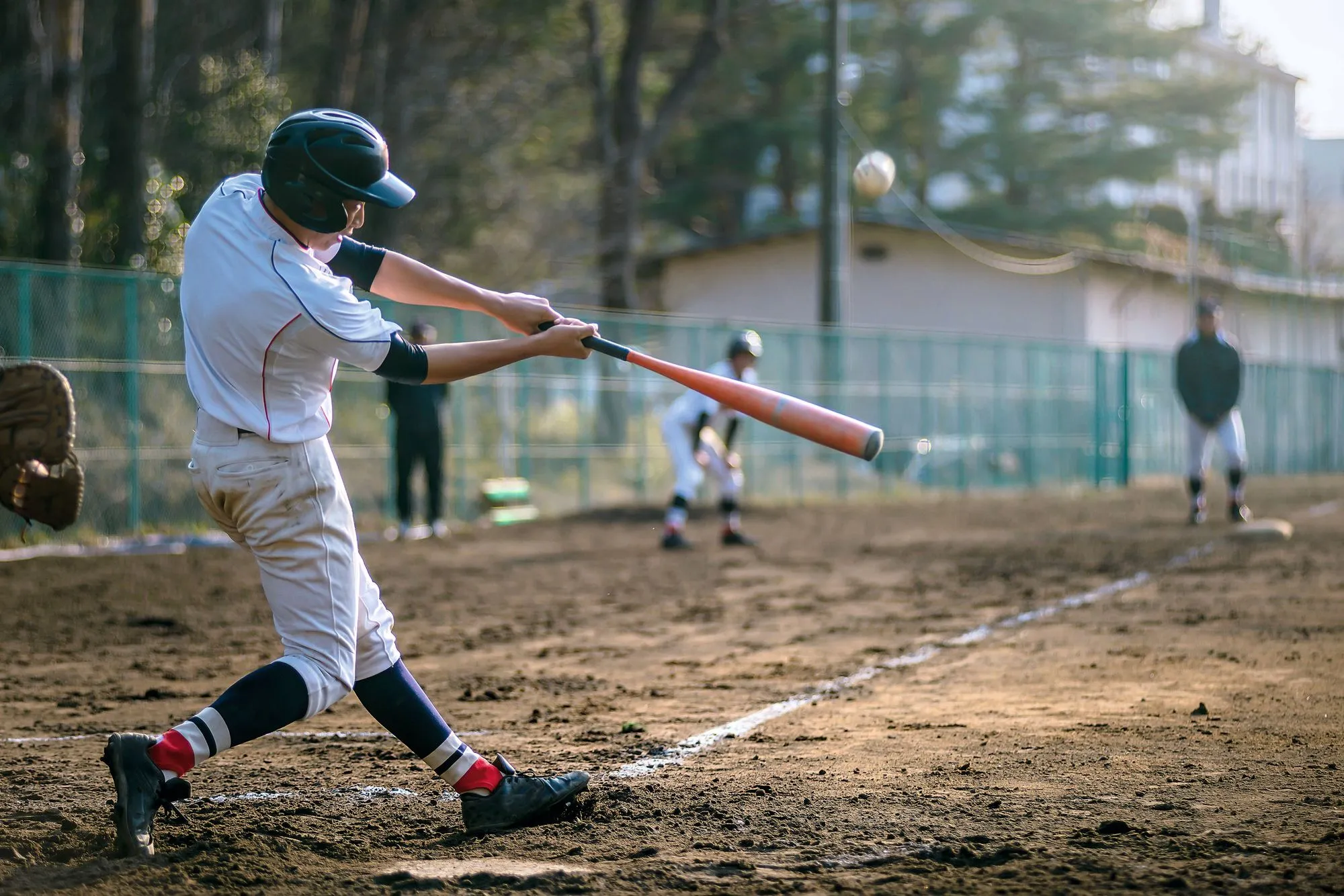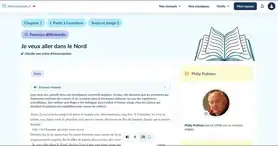Unit 10
Reading corner
How to get an athletic scholarship
Ressource affichée de l'autre côté.
Faites défiler pour voir la suite.
Faites défiler pour voir la suite.
Text document
Athletic Scholarships: Step By Step Blueprint For Playing College Sports
College bound athlete! One of the most exciting times of your life will be when you are playing high school sports while simultaneously trying to secure a college athletic scholarship.
Your hopes and dreams of playing your sport in college are now within view. All those practice sessions, training camps and high school games are about to pay off.
The experience is truly exciting and exhilarating for you, your friends, and your parents. You may even begin to feel that you definitely will be recruited and will be awarded the athletic scholarship of your dreams. The reality is that you do not have the scholarship until you sign the Letter of Intent.
So, no matter how much ballyhoo is going on, keep that in mind. This is not the time to leave this very important process to chance. Keep your wits about you until you actually sign with a school. Remember the college coaches are selling their programs to athletes at this time.
Several of them may be calling you everyday and it would be easy to begin to feel that you could let up some on your own recruiting activities.
There are countless stories of good athletes who went through this whirlwind of recruiting activity only to fall through the cracks. Don't let this happen to you.
Enjoy this exciting time, but be aware that it can also be one of the most frustrating, confusing, and overwhelming times of your life. This manual is intended to inform you, the student-athlete, and your family about the recruiting process or the “game” of pursuing an athletic scholarship.
To be successful, you must take control of this process and you must learn how to maximize your chances of obtaining the athletic scholarship you are seeking.
This up-to-date guide can give you confidence, information, and the tools you will need to place yourself in contention for your much-desired athletic scholarship. Experts agree that the most prized commodity in the recruiting game is “information”. College coaches and prospective college athletes both succeed or fail by information or the lack of information.
Athletes need to know where they can receive a scholarship and how to go about getting one; college coaches need to know about athletes who will best benefit their programs.
Years ago, most college programs spent a minimum amount of time and effort on recruiting. The recruiting process mostly consisted of scouting the local high schools and relying on high school coaches to send along information about promising athletes.
Today, the recruiting process is highly sophisticated; and, in most cases, demands that student/athletes know how to market themselves. Many well-intentioned coaches, parents, and high school guidance counselors, who are advising student-athletes today, do not understand the steps in the recruiting process.
Additionally, the vast majority of them were never college-recruited athletes themselves; so, they may be giving kids, hoping for a college athletic scholarship, incomplete, erroneous, and potentially damaging information. [...]
As a student-athlete, you can help your chances of qualifying for an athletic scholarship by demonstrating superior athletic skills and by passing the required academic courses with a satisfactory GPA. Good timing and good luck may also come into play; but, undoubtedly, the most important thing that you can do is to learn how to promote yourself to college coaches. [...]
You will also need to know how to keep yourself eligible. Academic problems are by far the most common way that student-athletes become ineligible.
There are, however, many less common circumstances, which could also cause you to become ineligible.
For example, you could accept money or other things from a prospective college coach or booster club. This would cause you to become ineligible under the current NCAA guidelines.
Remember, college athletics is big, big business involving billions of dollars. It is important to know that the activities of other people such as your high school coach could even cause you to become ineligible.
Your hopes and dreams of playing your sport in college are now within view. All those practice sessions, training camps and high school games are about to pay off.
The experience is truly exciting and exhilarating for you, your friends, and your parents. You may even begin to feel that you definitely will be recruited and will be awarded the athletic scholarship of your dreams. The reality is that you do not have the scholarship until you sign the Letter of Intent.
So, no matter how much ballyhoo is going on, keep that in mind. This is not the time to leave this very important process to chance. Keep your wits about you until you actually sign with a school. Remember the college coaches are selling their programs to athletes at this time.
Several of them may be calling you everyday and it would be easy to begin to feel that you could let up some on your own recruiting activities.
There are countless stories of good athletes who went through this whirlwind of recruiting activity only to fall through the cracks. Don't let this happen to you.
Enjoy this exciting time, but be aware that it can also be one of the most frustrating, confusing, and overwhelming times of your life. This manual is intended to inform you, the student-athlete, and your family about the recruiting process or the “game” of pursuing an athletic scholarship.
To be successful, you must take control of this process and you must learn how to maximize your chances of obtaining the athletic scholarship you are seeking.
This up-to-date guide can give you confidence, information, and the tools you will need to place yourself in contention for your much-desired athletic scholarship. Experts agree that the most prized commodity in the recruiting game is “information”. College coaches and prospective college athletes both succeed or fail by information or the lack of information.
Athletes need to know where they can receive a scholarship and how to go about getting one; college coaches need to know about athletes who will best benefit their programs.
Years ago, most college programs spent a minimum amount of time and effort on recruiting. The recruiting process mostly consisted of scouting the local high schools and relying on high school coaches to send along information about promising athletes.
Today, the recruiting process is highly sophisticated; and, in most cases, demands that student/athletes know how to market themselves. Many well-intentioned coaches, parents, and high school guidance counselors, who are advising student-athletes today, do not understand the steps in the recruiting process.
Additionally, the vast majority of them were never college-recruited athletes themselves; so, they may be giving kids, hoping for a college athletic scholarship, incomplete, erroneous, and potentially damaging information. [...]
As a student-athlete, you can help your chances of qualifying for an athletic scholarship by demonstrating superior athletic skills and by passing the required academic courses with a satisfactory GPA. Good timing and good luck may also come into play; but, undoubtedly, the most important thing that you can do is to learn how to promote yourself to college coaches. [...]
You will also need to know how to keep yourself eligible. Academic problems are by far the most common way that student-athletes become ineligible.
There are, however, many less common circumstances, which could also cause you to become ineligible.
For example, you could accept money or other things from a prospective college coach or booster club. This would cause you to become ineligible under the current NCAA guidelines.
Remember, college athletics is big, big business involving billions of dollars. It is important to know that the activities of other people such as your high school coach could even cause you to become ineligible.
Ressource affichée de l'autre côté.
Faites défiler pour voir la suite.
Faites défiler pour voir la suite.
Questions
a) Who is this text addressed to?
b) What does the narrator imagine about the feelings of young athletes?
c) What is the only proof that you have obtained an athletic scholarship?
d) What and who does the narrator warn athletes against?
e) What is the text promoting? What does it offer? What for?
f) How was the recruiting process of young athletes in the past?
b) What does the narrator imagine about the feelings of young athletes?
c) What is the only proof that you have obtained an athletic scholarship?
d) What and who does the narrator warn athletes against?
e) What is the text promoting? What does it offer? What for?
f) How was the recruiting process of young athletes in the past?
g) What is the situation now? What has changed?
h) What does the narrator reproach coaches with? How does she explain it?
i) What are the five necessary conditions to obtain an athletic scholarship?
j) What risk do young athletes run? How could this happen?
k) Whose actions can also endanger one athlete's chances to get an athletic scholarship?
h) What does the narrator reproach coaches with? How does she explain it?
i) What are the five necessary conditions to obtain an athletic scholarship?
j) What risk do young athletes run? How could this happen?
k) Whose actions can also endanger one athlete's chances to get an athletic scholarship?
Ressource affichée de l'autre côté.
Faites défiler pour voir la suite.
Faites défiler pour voir la suite.
College: The higher education system in the United States is quite complex. The difference between university and college is subtle but it is important to know that a college is smaller than a university and that a university can contain several colleges. Usually, a college is a school which only offers undergraduate courses (as opposed to postgraduate courses) - although there are exceptions.
GPA or Grade Point Average: It is a number between one and four (four being the best) which gives an idea of your average grade over a determined period of time - like a semester for example. It is very important because it is a number which schools look at to determine whether or not you are meeting their expectations.
GPA or Grade Point Average: It is a number between one and four (four being the best) which gives an idea of your average grade over a determined period of time - like a semester for example. It is very important because it is a number which schools look at to determine whether or not you are meeting their expectations.
NCAA or National Collegiate Athletic Association: It is an organisation founded in 1906. They ensure that competition between students is fair and safe regarding athletics.




Ressource affichée de l'autre côté.
Faites défiler pour voir la suite.
Faites défiler pour voir la suite.
Your time to shine!
Ressource affichée de l'autre côté.
Faites défiler pour voir la suite.
Faites défiler pour voir la suite.
Make references to this text to illustrate your point. You can use some examples.
Decide on the point of view you want to give (promote or denounce).
Organise your arguments.
•
Decide on the point of view you want to give (promote or denounce).
Organise your arguments.
•
Ressource affichée de l'autre côté.
Faites défiler pour voir la suite.
Faites défiler pour voir la suite.
As a journalist for your high school newspaper, you decide to write an article informing your classmates about athletic scholarships (150-180 words).
Une erreur sur la page ? Une idée à proposer ?
Nos manuels sont collaboratifs, n'hésitez pas à nous en faire part.
j'ai une idée !
Oups, une coquille

